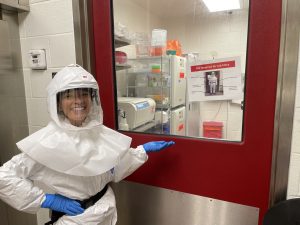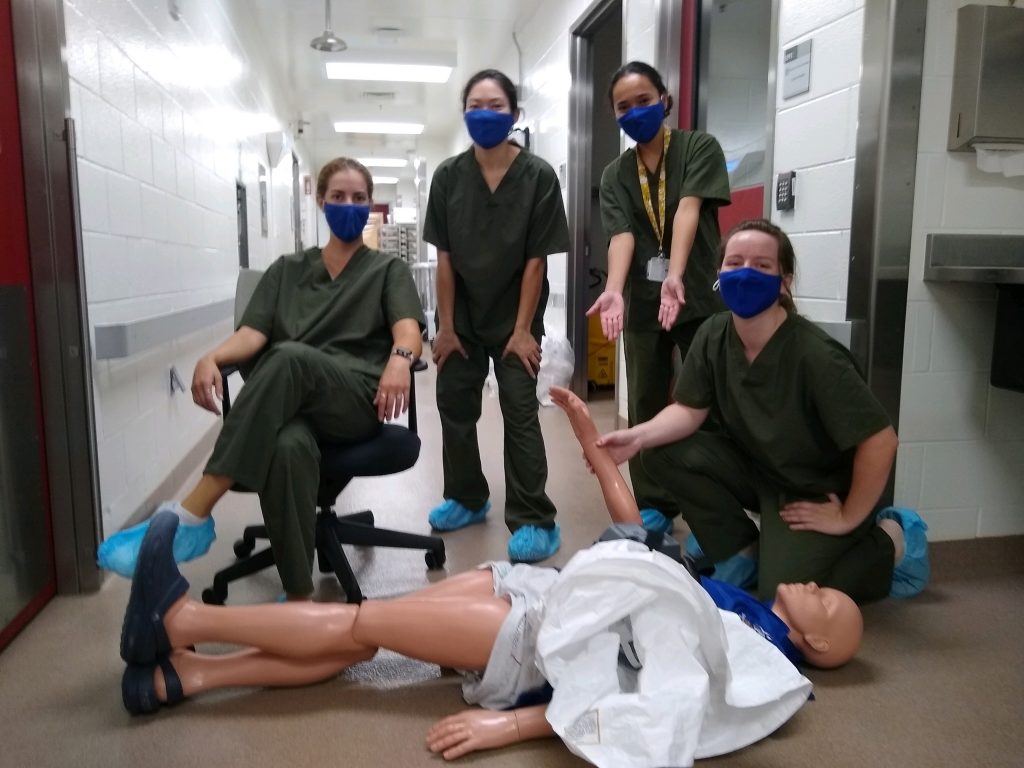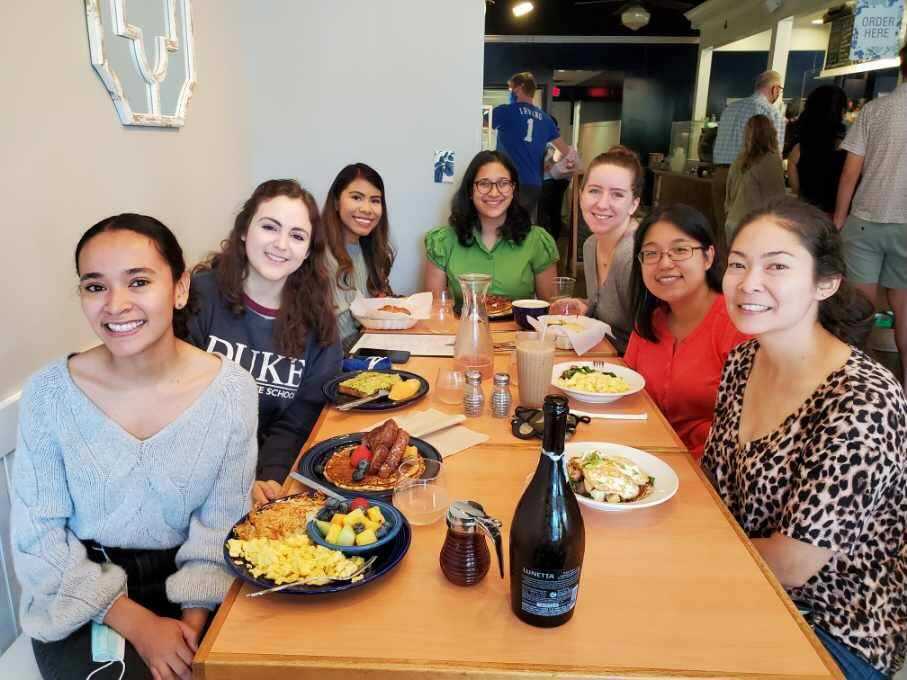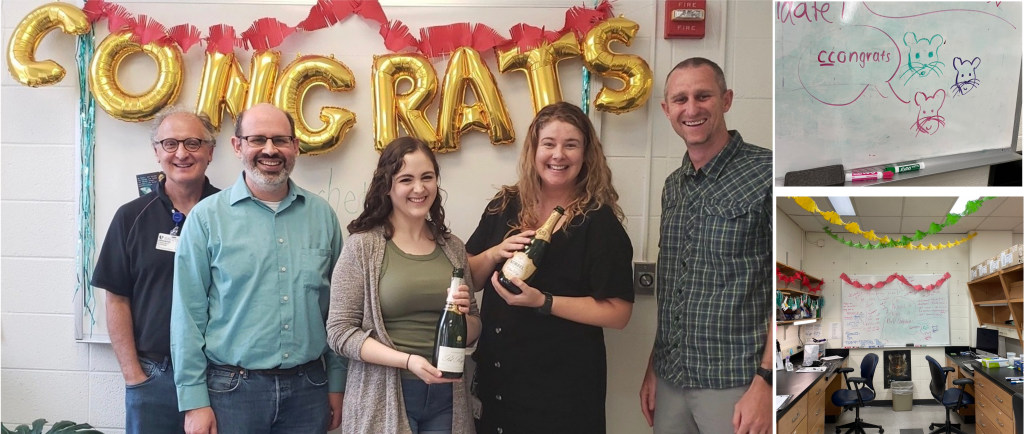 The Smith Lab enjoyed hosting Emily Engeman as a rotation student this spring.
The Smith Lab enjoyed hosting Emily Engeman as a rotation student this spring.
A local to the area, Emily attended North Carolina State University in Raleigh for her undergraduate education, where she studied biology and minored in business administration. After graduating in 2017, Emily moved to Washington, D.C. to research HIV in Dr. Sodsai Tovanabutra’s lab at the Walter Reed Army Institute for Research (WRAIR). Her primary research focuses involved investigating HIV mutations and coreceptor usage. In 2019, Emily accepted an ORISE fellowship at WRAIR to work with Dr. Anna Jacobs. In Emily’s fellowship program, she worked to develop a robotic biofilm assay and researched phage antibiotic synergy in vitro and in a mouse wound model. Now pursuing her Ph.D. at Duke, Emily is excited to study host pathogen interactions and investigate potential therapeutics.
How can a host with very low levels of infection look and act like a host with severe TB? This is a question Emily set out to answer in her rotation, which centered on host genetic determinants of tuberculosis tolerance in the Collaborative Cross panel. Throughout her rotation, she studied the immunological dynamics and mechanisms of disease tolerance in mammalian hosts while completing her training in the BSL-3 laboratory. We look forward to seeing the awesome scientific questions she’ll pursue throughout her graduate studies at Duke!

















 The Smith Lab concluded a year of excellent rotations by hosting Margaret Gaggioli as a rotation student this spring.
The Smith Lab concluded a year of excellent rotations by hosting Margaret Gaggioli as a rotation student this spring. The Smith Lab enjoyed hosting Emily Engeman as a rotation student this spring.
The Smith Lab enjoyed hosting Emily Engeman as a rotation student this spring.